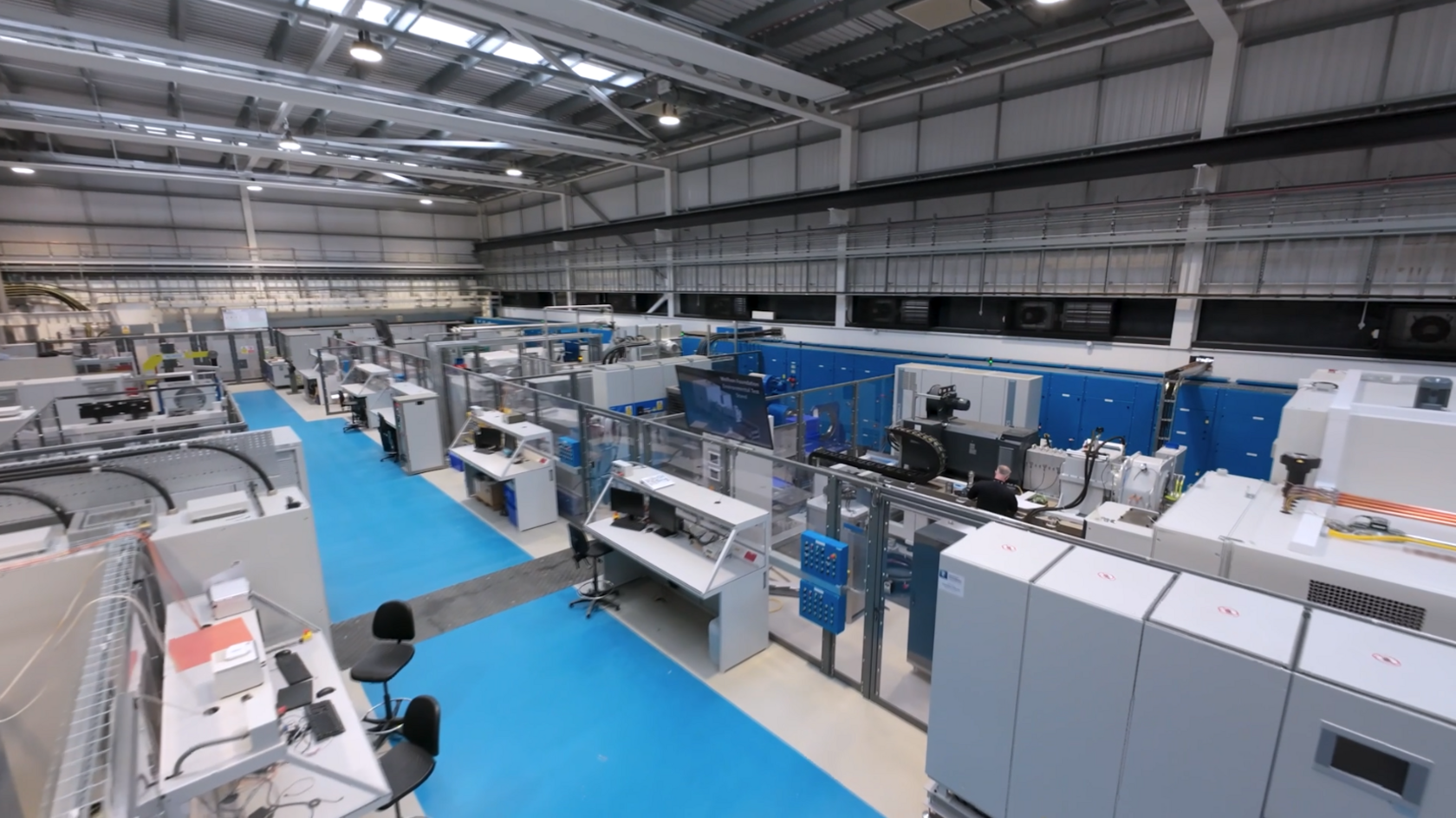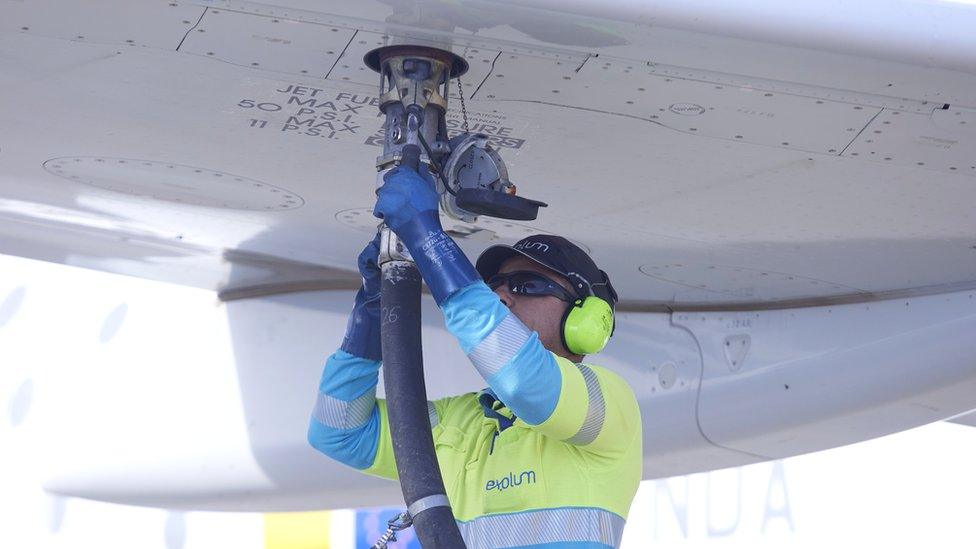Research project has vision for net-zero air travel

The programme is part of a pioneering £44m project led by GKN Aerospace, supported by the UK government
- Published
A research project looking into a new high-tech system that could create a greener way of flying planes has begun.
The University of Nottingham is undertaking a £5.3m programme to develop a cryogenic hydrogen-electric system as part of a wider project led by GKN Aerospace.
Scientists will develop a 2MW prototype engine to show how a number of new technologies, including hydrogen fuel cells and power distribution at very low temperatures, could be used to fly planes.
Prof Chris Gerada, lead for strategic research and innovation initiatives at the university, said: "The vision of net-zero air travel is within our sights."
"However, to get there, we must push the limits of what is technically possible," he added.
The H2FlyGHT collaborative initiative will be one of the first programmes to use the university's new hydrogen propulsion systems facility.
The site features a cryogenic lab that can create low temperatures, which helps increase the efficiency of electrical systems, the university said.
It also features an altitude environment chamber capable of testing some of the high-tech equipment.
Prof Gerada added: "Thanks to our new propulsion research infrastructure on campus, industry can co-locate, research, prototype, test, automate and manufacture the new solutions they need to future-proof their business.
"As a result, we can accelerate the economic prosperity of the East Midlands, the home of green industries and advanced manufacturing."
The news was announced in July at the 2024 Farnborough International Airshow.
Follow BBC Nottingham on Facebook, external, on X, external, or on Instagram, external. Send your story ideas to eastmidsnews@bbc.co.uk, external or via WhatsApp, external on 0808 100 2210.
Related topics
- Published24 November 2023
